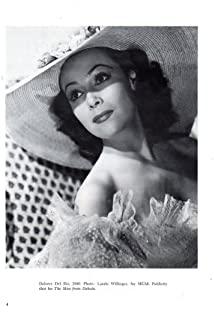"Xili Biography" uses old news as the material of the film, and shows the attitudes and opinions of different aspects of American society at that time in the form of a pseudo-documentary. The film uses interview records of real people and black-and-white photos to ingeniously blend real data with overly exaggerated things, making the film look illusory and full of joy. The sarcasm and absurd narration in the film, coupled with Woody Allen's constant ridicule, broke the rules of the original film. He used his knowledge and understanding of different eras in the United States, the back and forth between reality and fantasy, plus The comprehension and penetration of the real world caused the extreme alienation of the film.
Although Woody Allen's film style is relatively small and extreme, the themes he expresses through the film are quite positive. Breaking down the first paragraph, the reason why "Xili Biography" chooses to use news material to present the beginning and end of a story is mainly to reflect the authenticity of this absurd story, so that the audience can feel funny at the same time. On the contrary, I realized a kind of "authentic content", making the film into a "real" eternal historical event, and through this real event to express the absurdity of Zelig's existence, it also reflects the reality of a kind of virtual art feel.
As for the establishment of the sense of authenticity, it usually exists at different levels. In Film Criticism, this authenticity is attributed to three aspects: "One is to refer to a certain concept, such as the concept of society, the concept of life and the The concept of art. Second, it refers to a certain limited experience, such as I have experienced, I know, etc. Behind this, there is also a certain unconscious value, belief system: I believe, I want to believe. The third is a certain art The tastes and conventions of appreciation or cultural consumption here are not so much an objective difference as to whether they are real or not, but rather only a frame of reference or a basis for the accepted convention."
Strictly speaking, "Xili Biography" refers to a social concept that is contrary to the normal cognition of the public, and shows the reality of its existence through virtual events and the necessity of the existence of characters and characters in the events. . The particularity of the times is displayed through events, and the particularity comes from people's different social concepts. In "Biography of Xili", Zelig wants to hide his views that are different from others. He changes himself with the change of the social environment. He doesn't want to be different, and believes that only popularization can make him always exist in one place. In a relatively safe environment, but unexpectedly, it is this attitude of pursuing popularization that makes him different and makes him a "chameleon". This is what Dai Jinhua believes in the first level of authenticity. The representation of the representation makes itself real by referring to an idea.
Likewise, Zelig's changes are not subjectively conscious from the very beginning, but are also slowly summed up in his own social experience. Because of the particularity of society and its problems affecting him, the long-term natural attention to this state constitutes Zelig's special psychological structure, a need for self-realization and a summary of life cognition, so "Discoloration" is not an innate skill for him, but an acquired psychological emotion, which is also the unconscious value and belief system mentioned in "Film Criticism". In the end, Zelig is an entertainment consumption for the audience, which is only limited to the audience in the film. For Zelig's audience in the movie, they always have an attitude of entertainment consumption to show their love for Zelig, and this love only exists with him. This event is not Zelig himself, it is a fantasy constructed by people. world, and have fun and realism in this virtual world.
The structure of the film is also very ingenious. It uses interview records of real people and black and white photos to ingeniously integrate real materials with exaggerated things, and uses the virtual shadow projected by the external world to show the existence of reality. It uses the fusion and intersection of the real and the unreal, breaking the rules of previous films, and using the seriousness of the news and the absurd and righteous words carried by the events themselves to ridicule human nature. Compared with most documentaries, it is mainly aimed at the restoration of real scenes and real events. For "Xili Biography", it is not a documentary in the true sense, but only expresses a story in the form of a documentary. .
For the sound of the movie, one is Woody Allen's usual narration, and the more exciting aspect is in its cinematography, "Xilei" also won the best at the 56th Academy Awards. The nomination of photography, photography is a silent language of film, and it is an element with the most realistic characteristics in film. In "The Legend of Xili", the language of film is embodied in the form of black and white photos and short films. The form is rather absurd, but in fact this simple form makes it easier to understand in terms of expression. From another point of view, the existence of this special film language is also what makes "Xili Biography" different.
If "Xili Biography" is ironic from two aspects, on the one hand, it pays attention to Zelig himself, and on the other hand, it satirizes the ignorance of the public. For Zelig, his inner fragility created his chameleon side, while the pedanticness of popular thought and a consumption-oriented entertainment mentality were the important reasons for his tendency to destruction. His split state not only caused himself to fall into a field where he could not save himself, but also gave the public a negative spiritual impact, neither of which had a positive spiritual view. For Zelig, the state of the chameleon is a kind of spiritual loss, a kind of depression that cannot be forgiven after being stupid, but fortunately he is lucky, he has the right to be respected in the end, and this kind of respect The feeling is also to break the defense line of his fragile heart. Once the fragile is defeated, there is only an indestructible castle left.
View more about Zelig reviews











